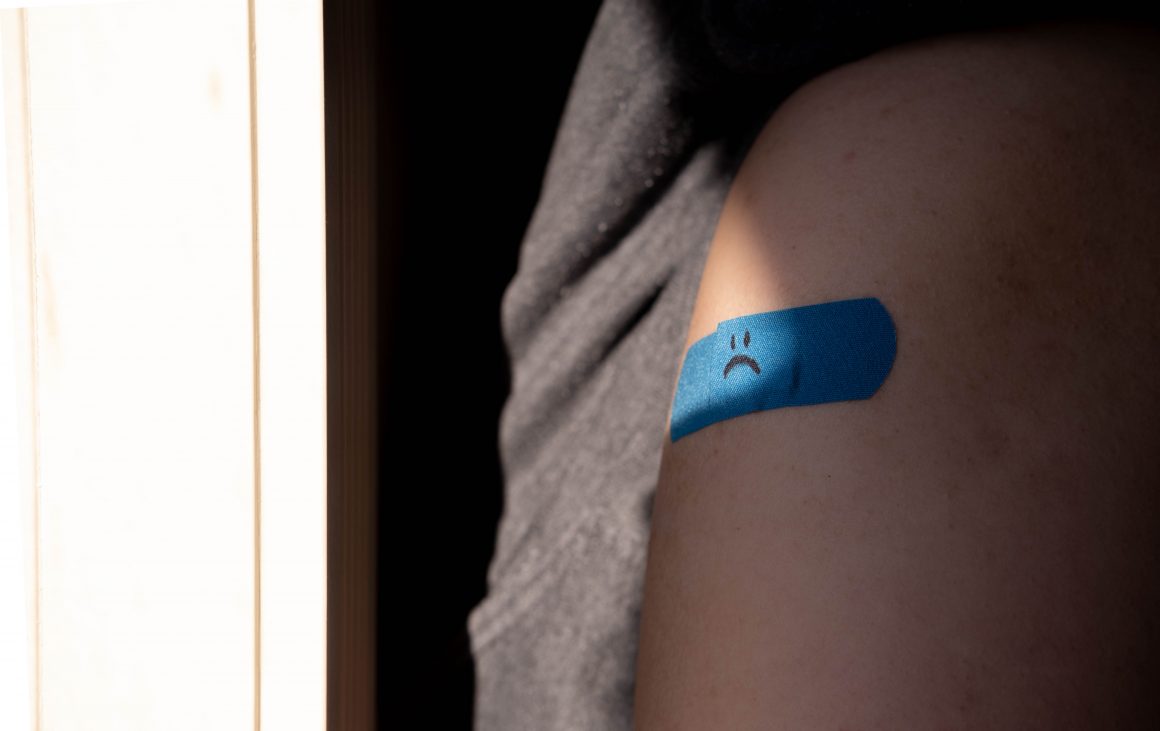
Conversations regarding COVID vaccine hesitancy
By Pamela Freeman, June 17 2021—
The immense vaccine rollout over the last month in Alberta has changed the local outlook of the COVID-19 pandemic. As of June 5, 66.4 per cent of the province’s eligible population has received one dose and 11.8 per cent are fully immunized. According to a recent poll, there has been a steep decline in those unwilling to or unsure about getting the vaccine, from 45 per cent in January to 17 per cent in May. While more and more people are having a change of heart around receiving a vaccine, demand for first doses is slowing and the individuals holding out will be the hardest to reach.
Informative and empathetic conversations about vaccine hesitancy are still incredibly important. Dr. Myles Leslie, an associate professor and the associate director of research at the University of Calgary’s School of Public Policy, has been involved in developing techniques to have better conversations around vaccine hesitancy. He is a health science researcher and ethnographer who has been collaborating with primary care physicians over the past year in translating COVID-19 related information and policy.
Leslie connected with Dr. Arnaud Gagneur, a neonatologist from the University of Sherbrooke, who has extensive experience and demonstrated success using a technique called motivational interviewing when discussing vaccinations with new parents. While COVID-19 provides a slightly different scenario, Gagneur’s tactics are a valuable resource for developing better conversations around any vaccine.
The general idea of motivational interviewing is not to change someone’s mind — you have to get to the origins of someone’s hesitancy and find what motivates that individual in decision- making. If you’re aiming to address vaccine hesitancy, Leslie said you have to “find the positive thing that the person is seeking in their life and attach the vaccine to that positive thing.” Trying to convince or convert someone by piling on facts is not effective.
“You have to respect their autonomy, you have to respect their worldview,” Leslie said, “People have the right to make decisions.”
Leslie uses his established connections to primary care doctors to create a “typology of hesitancy,” to understand who is vaccine-hesitant and why. Negative personal or community experiences with government or medicine can affect a person’s trust. Faith plays another large role in determining a person’s inclination toward being vaccinated. Understanding the origins and beliefs surrounding vaccine hesitancy in an individual is of the utmost importance.
“The quality of hesitancy is at least as important as the quantity of hesitancy,” Leslie said. Understanding where a person is coming from will provide insight into their motivations.
The collaboration of Leslie, his team and primary care physicians is developing a tool, by clinicians and for clinicians, to help them understand patient hesitancy and to provide examples for having better conversations. This can provide practice for what to say — for example, using accessible metaphors to explain how vaccines work and how to say it — ensuring empathy and trust are a part of the conversation. Physicians have both medical expertise and a unique relationship with their patients that they can leverage to have useful conversations around vaccine hesitancy.
Outside of the doctor’s office, Leslie is cautious about discussing vaccine hesitancy. The tactics of motivational interviewing could, in principle, be applied to conversations with loved ones. There is sound general advice about respecting people’s capacity to make decisions and avoiding polarizing fact-based conversations — but the effectiveness relies on the individual relationship and whether there are other complicating factors. In this realm, Gagneur has developed a vaccination chatbot for the public to start to learn about the techniques of motivational interviewing. The chatbot shows how compassion, an understanding of one another’s perspective and respect of autonomy can be incorporated into a conversation around how and why vaccines are used.
“[Once you] stop respecting people’s autonomy and capacity to think, you’re not having a great conversation,” Leslie said. He continued that people need to feel respected, and to know that they’ll “be a good person regardless” of the outcome. Incorporating motivational interviewing in conversations about the COVID-19 vaccine, he explained, is about “improving the quality of the conversation,” and helping to navigate a crucial turning point in the pandemic.
For information about vaccinations and Alberta’s vaccine program, visit the Alberta Health Services or the Government of Alberta websites.
